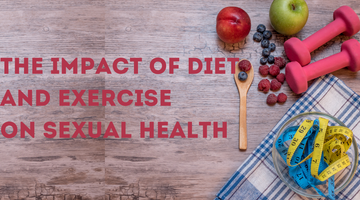
There is no scientific proof that having sex every day is harmful to one's physical or mental health. There is also no evidence for an "Ideal" or "Ideal" frequency for healthy sex life. Sex is a normal and pleasurable part of life. It's normal to have sex on a regular basis if you're in a relationship. But, as with many other pleasurable activities, it's common to assume that having sex must have some drawbacks. The truth is that having sex on a daily basis is not harmful to your health, and it can often provide real benefits for both your physical and mental health.
However, if you and your partner spend a lot of time in the bedroom on a daily basis, there are a few things you should be aware of. You'll also find a few pointers and strategies for avoiding common sex-related issues that may arise if you have sex every day.
Is Erectile Dysfunction (ED) Prompted By Frequent Sex?
No. In fact, most current research suggests that men who have sex on a regular basis are less likely to develop erectile dysfunction than men who have sex only occasionally. Regular sex appears to protect against the development of ED in middle-aged and elderly men, according to a study published in the American Journal of Medicine. A more recent Chinese study found similar results, with researchers noting that men who reported having sex at least once per week were less likely to have ED and more likely to have signs of good cardiovascular health.
It is important to note that if you and your partner have sex several times per day, you may find it difficult to get and stay hard all the time. This is due to your refractory period, which is the time after ejaculation when you won't be able to get an erection. This period can last anywhere from a few minutes to several hours. Your refractory period may affect your erections in the short term, but it is not considered a form of erectile dysfunction.
There Are Numerous Scientific Reasons Why You Should Have Sex Every Day
Minimizes Chances Of Prostate Cancer
This could minimize his prostate cancer risk. According to a Harvard Medical School study, men who ejaculated more frequently had a 22% lower risk of developing prostate cancer. Researchers are still unsure why this is the case, but hey, if you needed another reason to hit that tonight, having your guy avoid cancer is a pretty good one.
Will Catch Less To Cold Than Usual
Your chances of getting a cold decrease greatly. Researchers discovered that people who had sex at least twice a week produced more immune cells such as antibodies, which aid in the fight against colds and flu, so imagine how healthy you'd be if you had sex every day for seven days.
Reduces Cramps
It will help you get rid of your dreadful menstrual cramps. A study conducted in 2000 discovered that 9% of 1,900 women masturbated solely to relieve menstrual cramps. There is no way that so many masturbating women are incorrect.
Betters The Chances Of Getting Conceived
It could make you crazy-fertile if you're trying to conceive. A new study in Fertility and Sterility found that having sex every day could help prepare your immune system for pregnancy, which is critical in terms of increasing your chances of having a baby.
Your Sexual Compatibility Is Entirely Up To You.
Having sex every day is not harmful to your health. In fact, research suggests that having sex on a regular basis may help lower your risk of developing erectile dysfunction. AADAR accepts the fact that when it comes to sex, there is no such thing as a "Perfect" frequency. It's most important to have fun, stay safe, and enjoy sex the way you and your partner want it without worrying about how you compare to others. In theory, having sex every day would make you fertile, live longer, never get sick, and have the brain of Beyoncé. Basically, sex transforms you into a superhero.
If you still have any other sexual concerns don't shy away just get it treated without revealing your identity. You can consult your family doctor first, or you can contact our Health Expert or connect us at +919867667699 to obtain the most accurate diagnosis.




